![[In Photos] Yicai Hosts China Financial Value Ranking 2021](https://img.yicaiglobal.com/src/image/2021/12/17994952770584576.jpg) [In Photos] Yicai Hosts China Financial Value Ranking 2021
[In Photos] Yicai Hosts China Financial Value Ranking 2021(Yicai Global) Dec. 3 -- Yicai’s annual Financial Summit of China Financial Value Ranking was held in Shanghai yesterday. Exploring the theme of New Development and New Momentum, guests from institutional investors and academia jointly discussed and looked forward to a series of financial reforms in China.
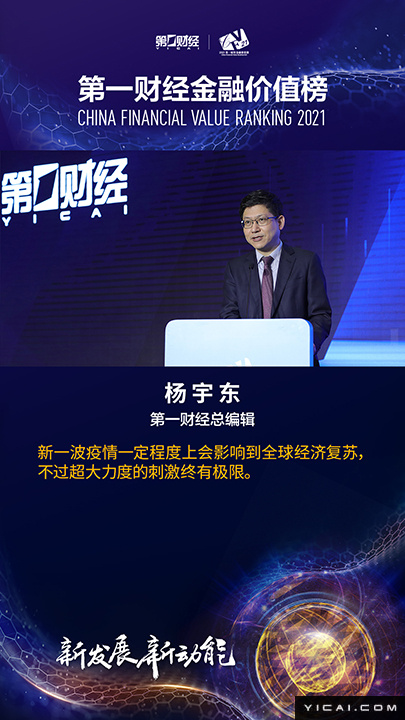
Yang Yudong, Yicai’s editor-in-chief, told the summit that a new wave of Covid-19 outbreaks could hamper the global economic recovery to some extent, but there are limits to excessive stimulus.
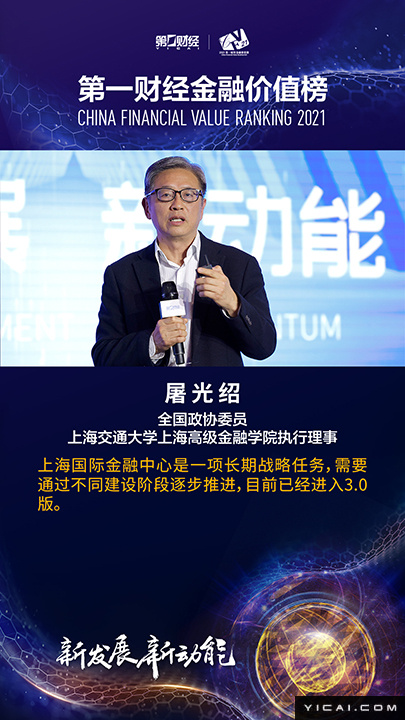
Tu Guangshao, a former vice mayor of Shanghai and a one-time deputy chair of China’s securities regulator, said building Shanghai into a global finance hub is a long-term strategic task, and the city must open up further to better integrate domestic and overseas financial resources.
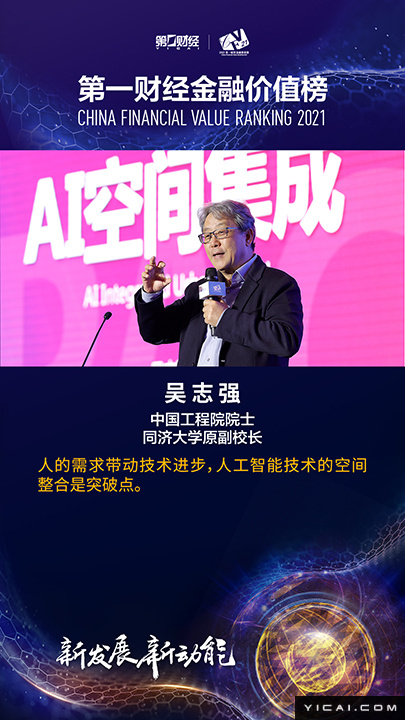
Wu Zhiqiang, a member of the Chinese Academy of Engineering and a former vice president of Tongji University, noted that human needs drive technological progress, and the spatial integration of artificial intelligence is the breakthrough point.
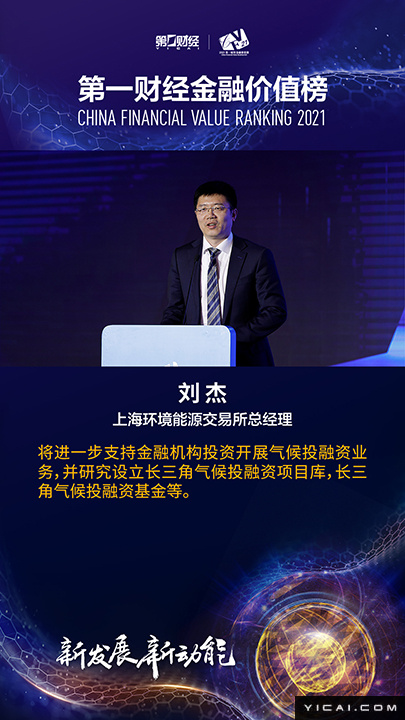
Liu Jie, general manager of the Shanghai Environment and Energy Exchange, said the SEEE will further support financial institutions to invest in and carry out climate investment and financing, and study setting up the Yangtze River Delta climate investment and financing project library and the Yangtze River Delta climate investment and financing fund.
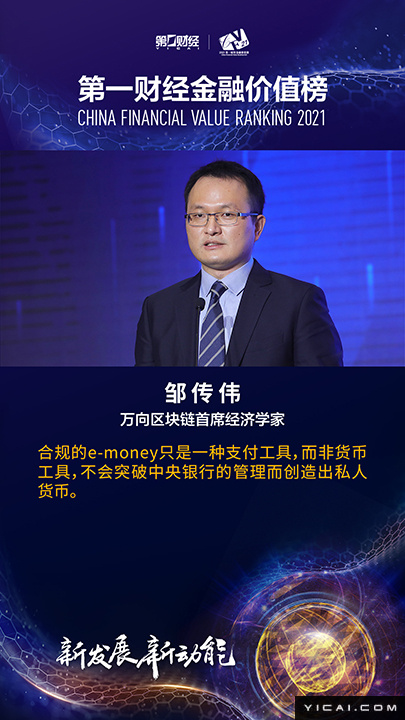
Zou Chuanwei, chief economist at Wanxiang Blockchain, pointed out that compliant e-money is just a kind of payment tool, not a monetary instrument, and so it will not breach central banks’ management to create a private currency.
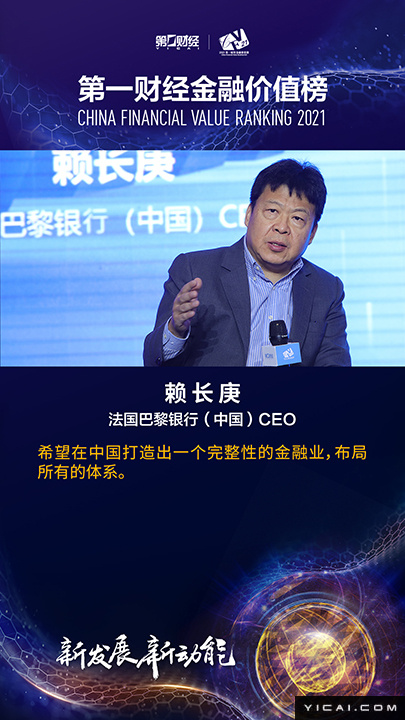
CG Lai, chief executive of BNP Paribas China, said his bank hopes to create a complete financial industry chain in China to involve all businesses.
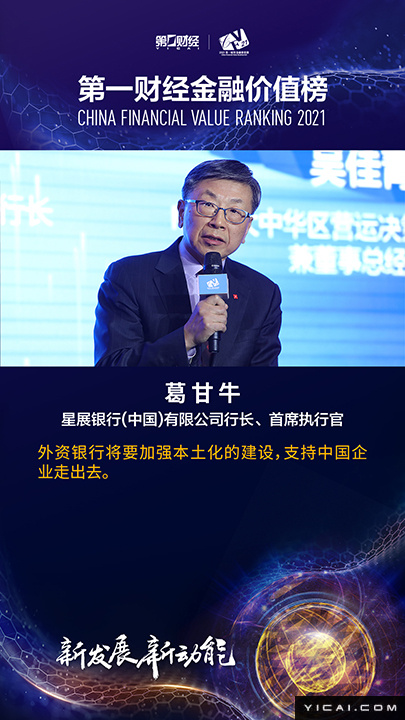
Neil Ge, chief executive officer of DBS Bank China, said foreign banks should strengthen localization efforts and support Chinese firms in going global.
Editors: Tang Shihua, Peter Thomas